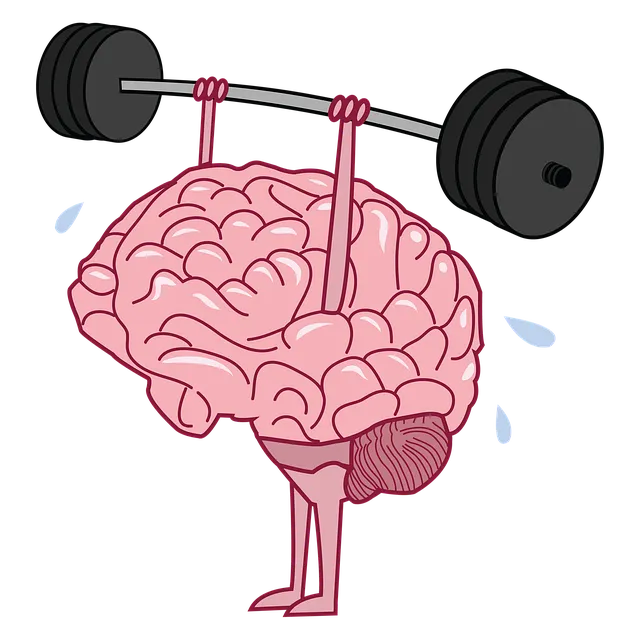In today's fast-paced world, prioritizing mental wellness is crucial. Tools like online questionnaires and mobile apps, including the Kaiser Permanente mental health phone number in Castle Rock, offer confidential access to evaluations, early detection of issues like anxiety and depression, and education on coping mechanisms. Kaiser Permanente emphasizes mental wellness through community initiatives, immediate assistance for healthcare providers, and accessible tools tailored to diverse needs. Effective self-assessment tools should be user-friendly, evidence-based, and adaptable, providing actionable feedback. Phone-based assessments, as offered by Kaiser Permanente, have revolutionized mental health care with convenient evaluations, self-care guidance, and personalized recommendations from home. The Castle Rock Community has pioneered programs like Mental Wellness Coaching and Mindfulness Meditation sessions, enhancing inclusive mental health support.
Mental wellness self-assessment tools play a crucial role in early detection and management of mental health issues. As recognized by organizations like Kaiser Permanente, accessible support mechanisms are vital for community well-being. This article explores the development of such tools, highlighting key components and the integration of technology through phone-based assessments. We study Kaiser Permanente’s approach to mental wellness and learn from Castle Rock Community’s initiatives, showcasing innovative strategies that can be adapted to improve mental health accessibility, especially in remote areas, underscoring the importance of resources like the Kaiser Permanente mental health phone number.
- Understanding the Need for Self-Assessment Tools in Mental Health
- Kaiser Permanente's Approach to Mental Wellness Support
- Developing Effective Assessment Tools: Key Components
- Integrating Technology: The Role of Phone-Based Assessments
- Case Study: Castle Rock Community and Its Mental Health Initiatives
Understanding the Need for Self-Assessment Tools in Mental Health

In today’s fast-paced world, prioritizing mental wellness is more crucial than ever. Self-assessment tools play a pivotal role in empowering individuals to take charge of their mental health, offering an accessible and confidential means to gauge one’s well-being. Tools like these are essential resources for those seeking support, especially in areas where professional help may be limited or difficult to access. For instance, the Kaiser Permanente mental health phone number in Castle Rock serves as a vital link for individuals in need of immediate assistance.
Self-assessment tools, such as online questionnaires and mobile applications, facilitate early detection of mental health issues like anxiety, depression, and stress. Moreover, they enable users to track their progress over time, fostering a deeper understanding of their emotional states. These tools also serve as valuable educational resources, providing insights into various aspects of mental wellness. From Mental Wellness Podcast Series Production to Communication Strategies, these assessments can guide individuals toward effective coping mechanisms and promote proactive mental health management.
Kaiser Permanente's Approach to Mental Wellness Support

Kaiser Permanente, a renowned healthcare organization, has been at the forefront of providing comprehensive mental wellness support to its members and employees. Their approach is multifaceted, focusing on both individual care and community well-being. One notable initiative is their dedicated mental health phone line in Castle Rock, offering immediate assistance and guidance to those seeking help. This accessible resource is a game-changer for many, allowing individuals to connect with trained professionals promptly.
The organization also emphasizes the importance of burnout prevention strategies for healthcare providers, recognizing the unique challenges they face. As a result, Kaiser Permanente has developed various programs and mental wellness podcast series production to promote resilience, self-care, and peer support. Through these initiatives, they foster an environment where mental health is prioritized, ensuring professionals can provide optimal care while maintaining their own well-being.
Developing Effective Assessment Tools: Key Components

Developing effective mental wellness self-assessment tools involves several key components. Firstly, ensuring user-friendliness is paramount; the tool should be intuitive and accessible, catering to diverse user needs. This includes clear and concise language, simple navigation, and adaptability for various age groups and cultural backgrounds. Incorporating a mix of standardized questionnaires, interactive exercises, and personal reflections can provide a holistic evaluation of an individual’s mental wellness.
Additionally, integrating evidence-based practices and methodologies is crucial. For instance, including sections on Emotional Regulation and Conflict Resolution Techniques can offer valuable insights into coping strategies and interpersonal dynamics. The tool should also allow for ongoing monitoring and progress tracking, enabling users to recognize patterns and make informed decisions regarding their Mental Wellness Coaching Programs Development. Key to success is the ability to provide actionable feedback that encourages self-reflection and promotes positive mental health outcomes, much like what Kaiser Permanente offers through its mental health phone number in Castle Rock.
Integrating Technology: The Role of Phone-Based Assessments

In today’s digital age, integrating technology into mental wellness self-assessment tools has emerged as a game-changer. Phone-based assessments, like those offered by organizations such as Kaiser Permanente through their mental health phone number in Castle Rock, are becoming increasingly popular due to their accessibility and efficiency. These assessments allow individuals to conveniently access mental health resources from the comfort of their homes, breaking down barriers traditionally associated with seeking help. With just a simple call, users can receive initial evaluations, guidance on self-care practices, and even personalized recommendations tailored to their unique needs.
This innovative approach not only ensures broader accessibility but also enables a more comprehensive assessment process. Through interactive questionnaires and one-on-one conversations, phone-based tools can capture subtle nuances in an individual’s mental state, providing valuable insights for professionals. Moreover, these platforms often incorporate mental wellness journaling exercises and offer resources on cultural sensitivity in mental healthcare practice, ensuring that support is tailored to diverse populations and effectively meets their specific requirements.
Case Study: Castle Rock Community and Its Mental Health Initiatives

Castle Rock Community, a diverse urban area served by Kaiser Permanente, has been at the forefront of mental health initiatives. Recognizing the unique challenges faced by its residents, the community has developed innovative programs to support mental wellness. One notable example is their partnership with local healthcare providers to offer accessible Mental Wellness Coaching Programs Development. These coaches provide guidance and resources tailored to individual needs, focusing on Resilience Building and promoting healthy coping mechanisms.
Through this initiative, Castle Rock has successfully implemented Mindfulness Meditation sessions in community centers and schools, fostering a sense of calm and well-being. The program’s success is evident in the increased participation rates and positive feedback from residents. By combining these strategies, Castle Rock demonstrates its commitment to enhancing mental health support, ensuring that services are inclusive and accessible via the Kaiser Permanente mental health phone number.
Mental wellness self-assessment tools have become increasingly vital in addressing the growing need for accessible, timely, and personalized mental healthcare. As demonstrated by Kaiser Permanente’s successful implementation of various support systems and Castle Rock Community’s initiatives, integrating technology through phone-based assessments can significantly enhance these tools’ reach and effectiveness. By focusing on key components such as simplicity, adaptability, and data privacy, developers can create resources that empower individuals to take charge of their mental well-being, fostering a healthier and more resilient community, especially in areas like Castle Rock where access to mental health services is crucial.






